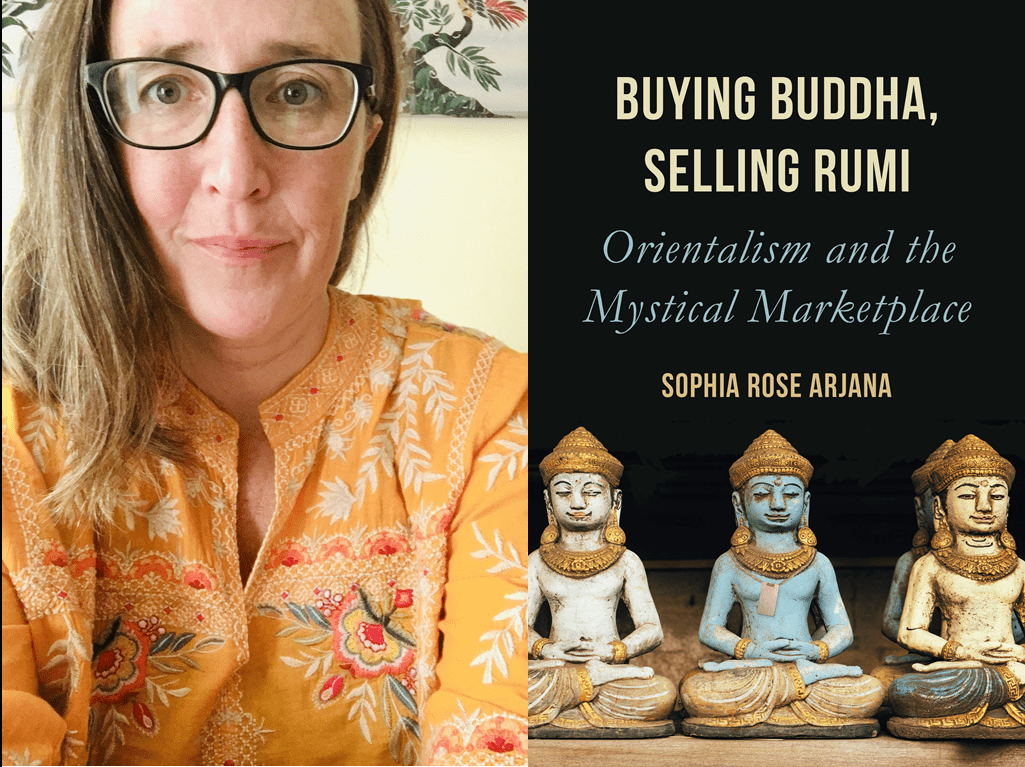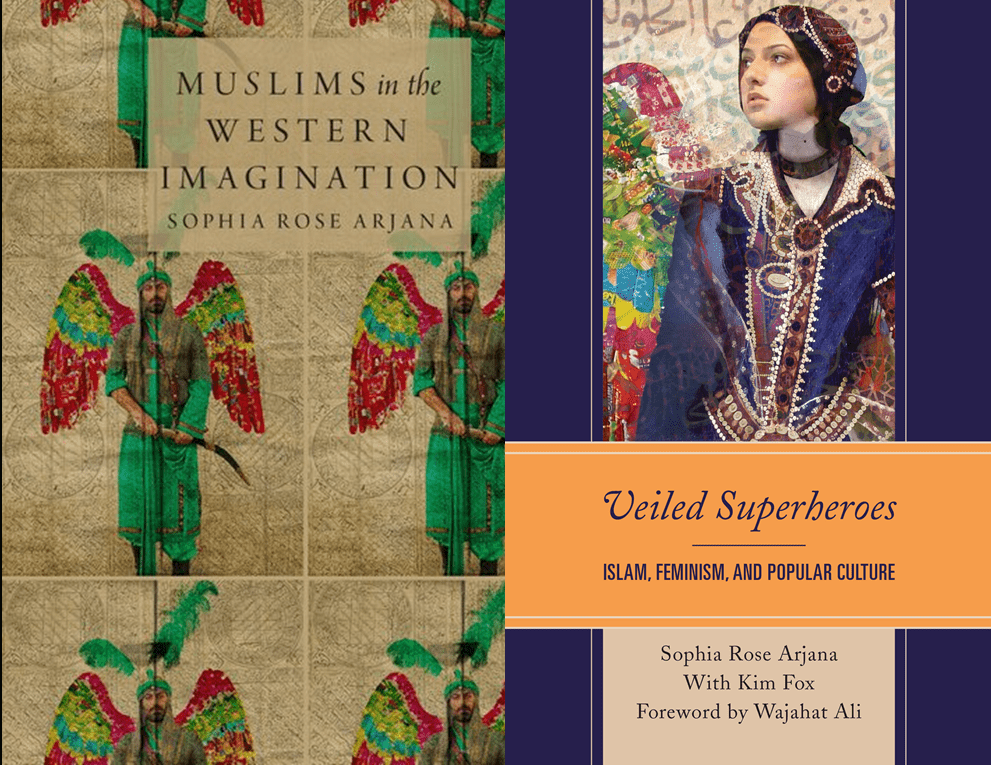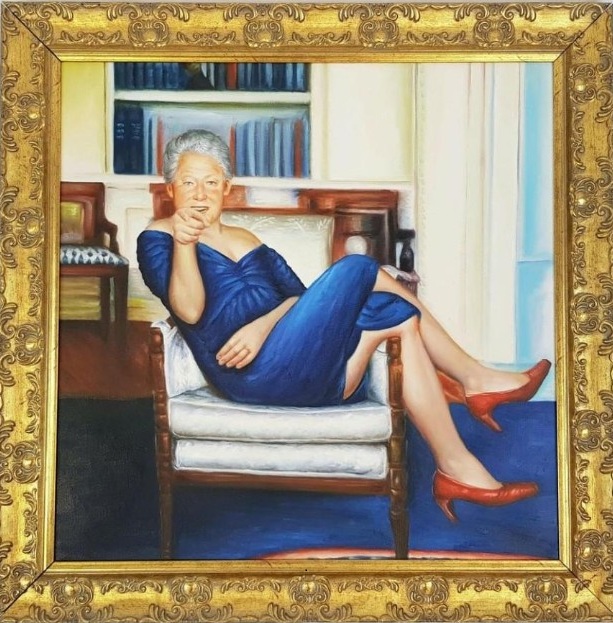
The Levant News Exclusive – By Emad El-Din Aysha, PhD
Dr. Sophia Rose Arjana, please introduce yourself to our readers. Your education, background and interests?
I am an Associate Professor of Religious Studies at Western Kentucky University. My department home is the Department of History. I hold a BA in Pacific Island Studies, an MA in Art History, a MTS in Ethics, and a PhD in Religion. My areas of research are Islam, gender, Islamophobia, pilgrimage, Orientalism, and material religion.
How many books have you published and what drove you to write BUYING BUDDHA, SELLING RUMI: Orientalism and the Mystical Marketplace (2020)? How long did it take you to write and what strategy did you pursue?
I have four published books. My first book, Muslims in the Western Imagination (Oxford, 2015) is a study of anti-Muslim discourse in Europe and North America. It was recently published in a Turkish edition. My second book is Pilgrimage in Islam: Traditional and Modern Practices (Oneworld, 2017), which is a study of Muslim pilgrimage traditions around the world, including cyber-pilgrimage and virtual pilgrimages. My third book, Veiled Superheroes: Islam, Feminism, and Popular Culture (Lexington Books, 2017) examines female Muslim superheroes in graphic narratives, from comics to animated cartoons.
My most recent book is Buying Buddha, Selling Rumi: Orientalism and the Mystical Marketplace (Oneworld, 2020) and is focused on the links between Orientalism and the commodification of religious traditions identified with the East. This was a project that started in graduate school, when I first began thinking about a number of questions. One of them was – how do people find enchantment in a disenchanted, modern world? I began writing this book a few years ago after gathering a ton of research. My strategy was to create a study that could be used in a variety of courses, but also that would inspire other studies that look at the questions of enchantment, disenchantment, commodification, and cultural colonialism—and how these are all related to the desire for mystical experience.

You’re style of writing is very relaxed and historical instead of emphasizing terminology and methodology, something I commend you for. How influenced were you by Edward Said in your writings, and do you believe that research on Orientalism has been able to expand and refine on his initial findings and approach?
I appreciate the compliment. I think one of the lessons of Said is to make our scholarship more accessible. Scholarship should be written in a way that undergrads, for example, can read without picking up a dictionary for every page. Said has influenced all of my work in different ways. For this book, I was interested in following up on the idea that Orientalism has real power in the world. In this case, my focus is on the links between Orientalism and capitalism, more so than colonialism, although certainly the topic of cultural colonialism comes up in my book.
What do you mean by ‘muddled’ Orientalism? And is your usage of the word ‘gaze’ related to the feminist notion of Male Gaze and voyeurism?
Muddled Orientalism is the term I came up with to describe the messiness of Orientalism in the marketplace, where quotes by Buddha are mixed up with quotes by Rumi. The idea here is that the Orient is often presented in a mixed-up, general style that is inattentive to detail.
The gaze is related to the colonial male gaze, yes, and it is often apparent in the ways that the Orient is thought of, as an exotic place full of magic, and full of magical people. This is one of the ways that the “Mystic poor” I write about come in – they are viewed as salvific, and the Orient as an elixir for the ills of Western modernity. Of course, this idea then casts the East as anti-modern.
You talk about the primacy of Japan in American pop culture and Orientalism. Does this include Techno-Orientalism and Anime?
I don’t discuss these, but I do talk a bit about things like Zen style. How has Japanese culture entered the marketplace? In numerous ways, it turns out – from baby gear that is marketed as “Zen style” to the costuming in some of the Star Wars films.
Have you watched Mad Max: Fury Road (2015)?
I have not. It is on my list!
As luck would have I was watching David Cronenburg’s movie Cosmopolis (2012) just before I began reading your book, and now looking at it in retrospect I found a lot of what you said in the movie. The protagonist, the nihilistic billionaire currency speculator Eric Packer (Robert Pattinson), is a big fan of a Sufi hiphop singer and attends his funeral at a key juncture in the movie, and there are Sufi dervishes in the funeral procession. The funeral, moreover, isn’t exactly kosher as far as Islam is concerned since you have an open casket ceremony, something that is anathema to orthodox Islam.
Even more subtly you have a scene where Eric is at the barbers, in the middle of the night, and the old man invites him to eat either a plate of chick peas or eggplant with nuts, I presume Moussaka in Greek. (We eat it in Egypt too). His limousine driver is an African Muslim, a refugee from a tyrannical police state that almost cost him his eye. Eric actually has a rapport with him and treats him like a brother. Any comments?
NO comments, but clearly this is a film I need to watch ASAP!
You mention the TV series Lost and the classic Star Wars franchise, more specifically the original trilogy and also Rogue One: A Star Wars Story (2016). Did you notice the subtle hint to the Dome of the Rock mosque and the Old City of Jerusalem in the Jedha City? (Even ‘Jedha’ sounds like the Saudi city of Jeddah!)
I did. I am actually writing more about this currently. The Star Wars films have a lot of Orientalist imagery and there is some good evidence, I think, to argue that some of what Lucas is pointing to is Islamic. Other scholars have commented that Star Wars is a mythical mash up and I believe this as well. Meaning, there are Islamic elements but also Buddhist ones, and even Christian imagery and themes.
Some researchers have noted the Oriental symbolism in Java the Hut’s palace, with Java having slave girls (that he regularly sacrifices) and smoking a water pipe. Is he the archetypical Oriental despot? Would you say the rest of Star Wars portrays Easterners in a good light?
That is interesting. I never really thought of this character that way but yeah, it makes sense. I think another way we can look at Star Wars is that it presents a variety of images that need to be carefully analyzed. I certainly don’t think the films are pejorative about Islam, and in fact, they are full of beautiful Islamic imagery – from the wearing of veils to architectural style.
One last query on Star Wars. Does Orientalism explain Princess Leia’s notorious haircut in the first movie? But, more substantively, does the series prove that the East can be handled in a responsible and positive way by Western pop culture?
The donut hairdo? I don’t think we can link that to Orientalism. Probably a poor decision on the part of a stylist on the set.
Any comments on Frank Herbert’s Dune and the upcoming release of the latest movie adaptation? Any comments on the original David Lynch movie?
I need to reserve my comments until I see the new film. But I would like to give a shout out to the numerous discussions taking place among Islamic scholars and other Muslims. Ali Olomi was part of a wonderful conversation last week, for example, and there is another one coming up at Duke University in November with Carl Ernst.
Now the penultimate question. If Muslims and Arabs wrote more of their own science fiction, never mind make sci-fi movies and TV series, could they counter negative, exotic stereotypes of themselves in Western media and pop culture? (I ask naturally as an SF author). Are there models of Third World countries doing that with their literary and audio-visual produce?
Maybe. There has been this argument that if Muslims had more positive representations then it would change perceptions socially, but I am not convinced of that. The Cosby Show, for example, featured wonderful characters, but anti-Black violence is a terrible problem in our society. The same for Ellen and anti-LGBTQ sentiments. I am unconvinced that these issues go away just because we have some positive pop culture, but certainly it doesn’t hurt.
If Muslims and Arabs wrote Sufi science fiction, could this fall afoul of the mystic commercialism industries that you list and analyze so deftly in your chapters “Mysticism, Incorporated” and “Rumimaniacs”?
Perhaps. I think Muslims would be more careful about some of the mystical appropriations we see. But at the same time, there is nothing inherently wrong with mysticism – it is just the making money off of people’s traditions in unsavory ways that is problematic.

Come to think of it, why do you think they had a Yugoslavian actress, Mira Furlan, in Lost?
Not sure about this but likely just a choice of the casting director.
Any final advice on how wee as Arabs, Muslims and Orientals can have our own voice in the cultural marketplace and reverse the tide of cultural appropriation?
I think one of the greatest things to happen is more Muslim artists, storytellers, and bloggers getting more visibility. I am not sure about reversing cultural appropriation but the more Muslim-created content is good, because it provides an alternative discourse to the more negative portrayals of our community.
Oh, would you believe it, you mention Hindu Bali extensively in your book and I have Bali and Hinduism in one of my unpublished SF stories. I’d like to think I’m exempt from Orientalism as an Oriental myself, especially since I have the Muslims in the story learning valuable lessons from the Hindus!






